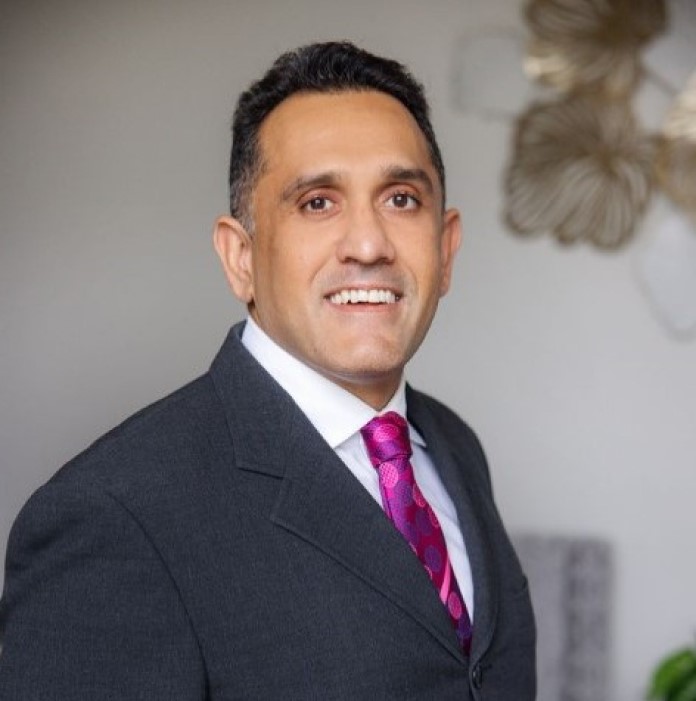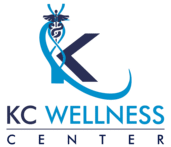
Testosterone is more than just a male sex hormone; it’s a cornerstone of male health. As men grow older, it’s common for testosterone levels to decline gradually, which can profoundly affect energy, mood and overall well-being.
Understanding and recognizing the signs of low testosterone is crucial for timely intervention. Ignoring these symptoms can result in significant health challenges.
At KC Wellness Center, we are committed to guiding men through this journey, offering personalized support and treatments that foster a healthier, more vibrant life.
What are the functions of testosterone in the body?
Testosterone is crucial in maintaining muscle mass, bone density, fat distribution, red blood cell production and sex drive in men. It also influences mood and energy levels, contributing to overall well-being and vitality. Low testosterone levels can manifest in various surprising ways beyond the commonly known symptoms.
Men may experience subtle signs that often go unnoticed or are attributed to other factors, highlighting the importance of awareness and proactive health monitoring. KC Wellness Center emphasizes the significance of early detection and tailored treatments to address low testosterone levels effectively.
Now that we understand testosterone’s vital role in male health, let’s explore the specific symptoms that may indicate a deficiency in this crucial hormone.
Symptoms of Low Testosterone
Unexplained Fatigue and Low Energy: Men with low testosterone, or “low T,” often experience profound fatigue that isn’t relieved by rest. This can diminish productivity and overall quality of life. The decrease in energy levels is a key indicator of this hormone deficiency, affecting physical stamina and emotional resilience.
Mood Fluctuations: Testosterone plays an important role in regulating mood and cognitive functions. Fluctuations in hormone levels, particularly when they fall below the normal range, can make men more susceptible to mood disorders such as depression and anxiety. These mood swings can be exacerbated by the stress of dealing with other symptoms of low T.
Decrease in Muscle and Bone Mass: This male hormone is crucial for maintaining muscle strength and bone density, particularly in adult males. Lower amounts of this hormone can lead to reduced muscle mass and weaker bones, which increases the risk of fractures, a common concern for older men.
Changes in Physical Appearance: Low T can lead to physical changes such as decreased body and facial hair growth, which involves the hair follicles’ response to testosterone levels. Weight gain, especially around the abdominal area, is common, as this male hormone helps regulate fat distribution and muscle mass maintenance.
Sexual Dysfunction: A significant decline in sex drive and difficulties with sexual function are also common symptoms. This hormone is essential for maintaining libido, erectile function and sperm production. Men experiencing these issues often have reduced levels of total testosterone, impacting not only their relationships but also their self-esteem.
Recognizing these symptoms as signals of low testosterone can lead you to seek necessary treatment options such as testosterone therapy or hormone replacement therapy. These treatments are designed to restore testosterone to normal levels, alleviate symptoms and improve quality of life.
At KC Wellness Center, we use a comprehensive approach to diagnosing and managing low T, ensuring treatments are tailored to each patient’s needs.
 Health Risks Associated with Low Testosterone
Health Risks Associated with Low Testosterone
Increased Risk of Chronic Diseases
Men with low levels of testosterone, a condition known as male hypogonadism, face a heightened risk of several serious health issues. Research has linked inadequate testosterone production, often influenced by the pituitary gland’s regulatory role, to an increased likelihood of developing heart disease and prostate cancer. This relationship is particularly concerning given that the prostate gland requires a certain amount of testosterone to function correctly.
Additionally, low T can affect red blood cell production, which might contribute to complications like blood clots and high blood pressure, further exacerbating the risk of cardiovascular disease.
According to The American Journal of Medicine, “Testosterone deficiency (TD) afflicts approximately 30% of men aged 40-79 years, with an increase in prevalence strongly associated with aging and common medical conditions including obesity, diabetes and hypertension.”
Bone Health and Osteoporosis
Testosterone is crucial in maintaining bone density; its decline can significantly increase the risk of osteoporosis and bone fractures. This is particularly true in older men, where natural decreases in testosterone production can weaken bone structure. The hormone’s role in bone health is critical because it helps stimulate the bone-building cells, contributing to bone growth and strength. Lower T levels reduce this stimulation, making bones more fragile and susceptible to injury.
Mental Health Concerns
The effects of low testosterone extend beyond physical health, significantly impacting mental well-being. Testosterone influences many aspects of cognitive function and emotional stability. Insufficient levels can lead to a range of mental health issues, including anxiety, depression and mood swings. These psychological effects are not only side effects of low testosterone. Still, they can also exacerbate the condition, creating a cycle that can be difficult to break without comprehensive treatment and support.
The intricate connection between testosterone levels and mental health necessitates careful management, often involving hormone treatment to stabilize mood and improve overall mental health. Recognizing and addressing these health risks associated with low T is essential.
At KC Wellness Center, we emphasize the importance of diagnosing and managing low testosterone not only to treat the immediate symptoms but also to mitigate the long-term health risks.
Whether through lifestyle changes, hormone replacement therapy or other forms of testosterone treatment, our goal is to maintain normal levels of testosterone in our patients, thereby enhancing quality of life and health stability.
 Diagnostic Approaches
Diagnostic Approaches
Understanding Testosterone Deficiency
The American Urological Association clarified that “Testosterone deficiency does not imply simply a state of low testosterone production; rather, to be testosterone deficient, one must have low testosterone levels combined with symptoms or signs associated with low serum total testosterone (henceforth referred to as ‘low testosterone’). Thus, a patient is considered testosterone deficient and a candidate for testosterone therapy only when he meets both criteria.”
This definition is essential as it guides our diagnostic and treatment strategies, ensuring that only those benefiting from therapy receive it.
Physical Exam
At our clinic, the first step in diagnosing low T is a comprehensive physical exam. During this exam, we assess various physical signs that may indicate low testosterone levels, such as reduced muscle mass, body hair loss and changes in the size of the sex organs.
Blood Tests
We perform detailed blood tests to measure testosterone levels and other crucial hormones. These tests assess total testosterone levels and set the foundation for your personalized treatment plan.
Additional Assessments
For a thorough diagnosis, we conduct evaluations and monitoring for related health conditions that could influence or complicate the hormonal conditions.
Your lifestyle, including stress levels, sleep quality and diet, is crucial to your hormonal health. Discussions will also cover the financial aspects of HRT, exploring insurance and payment options to ensure the treatment is accessible.
These diagnostic tools and assessments allow us to provide a comprehensive evaluation and tailor a treatment strategy that addresses not only the symptoms but also the root causes of low testosterone.
By integrating these diagnostic approaches, we aim to ensure your most effective treatment plan at KC Wellness Center, considering all factors that affect hormonal health.
Read these blogs for more detailed information on how to prepare for hormone replacement therapy and the most frequently asked questions about HRT.
Treatment Options at KC Wellness Center
Testosterone Replacement Therapy (TRT)
At KC Wellness Center, TRT is a treatment for addressing symptoms associated with low T. This therapy is designed to replenish hormone levels, which can significantly improve quality of life by alleviating symptoms such as chronic fatigue, mood instability and sexual dysfunction.
The American Urological Association (AUA) also recommends, “Patients should be informed that testosterone therapy may result in improvements in erectile function, low sex drive, anemia, bone mineral density, lean body mass, and/or depressive symptoms.”
Our clinic specializes in hormone replacement therapy for men, ensuring that TRT is carefully tailored to each individual’s needs to achieve the best outcomes and minimal unwanted side effects.
According to the Endocrine Society’s patient guide, “The method of treatment depends on the cause of low testosterone, the patient’s preferences, cost, tolerance and concern about fertility.” Treatment may include injections, gels, patches, tablets and pellets.
 Lifestyle Modifications
Lifestyle Modifications
The AUA also recommends, “All men with testosterone deficiency should be counseled regarding lifestyle modifications as a treatment strategy.”
Our health experts support these natural approaches with ongoing guidance to maximize effectiveness. We advocate for holistic treatment approaches, including lifestyle modifications to boost testosterone levels naturally.
Our recommendations focus on diet changes, such as incorporating more zinc and vitamin D, essential for maintaining healthy testosterone levels. Exercise, particularly strength training and high-intensity interval training (HIIT), is also encouraged as it helps stimulate testosterone production.
Medications and Supplements
For those who might not be ready for TRT or are looking for less invasive options, we provide thoughtful guidance on using supplements and medications safely. This includes natural supplements that nurture hormonal health and safer pharmaceutical alternatives to anabolic steroids, designed to boost your body’s own male hormone production without the risks associated with more aggressive treatments.
As a leading hormone treatment center and clinic for erectile dysfunction (ED) in Kansas City, we also offer specialized treatment for ED. We combine medical and non-medical approaches to tackle this complex issue effectively.
Our treatment plans are customized based on a thorough diagnostic assessment to meet your hormonal health needs. Whether through TRT, lifestyle adjustments or supplements, our goal is to restore your hormone levels and overall health and vitality.
Why Choose KC Wellness Center
Expertise and Specialization
At KC Wellness Center, we are deeply committed to men’s health, focusing on the intricate nature of hormonal imbalances. Our team is experts in men’s health, bringing years of specialized experience to address conditions like low T comprehensively.
Customized Care Plans
We understand that each individual’s health needs are unique. That’s why we craft personalized treatment plans that cater to your symptoms and health objectives. We tailor effective and sustainable interventions by considering all aspects of your lifestyle and health history.
Support and Counseling
Managing the challenges of hormonal changes can be daunting. KC Wellness Center provides continuous support and counseling to help our patients cope with these emotional and psychological changes. Our compassionate approach ensures that you feel supported every step towards recovery.
Addressing low T is vital for maintaining your health and enhancing your quality of life. Recognizing the symptoms early on can lead to more effective management and help prevent serious health issues in the future.
If you suspect that you or a loved one is experiencing symptoms of low testosterone, don’t hesitate to schedule a consultation. We can assist you in taking the first step toward reclaiming your health and vitality.

Dr. Rahul Kapur, M.D. is a board-certified family medicine physician with a dedicated passion for integrative medicine and a deep knowledge of functional medicine. He was named intern of the year at Wesley Medical Center in Wichita, KS, and has been practicing as a hospitalist for over a decade. He has successfully helped many patients in Kansas City with his specialized IV bags, ketamine therapy, hormone optimization and weight loss therapy methods.

 Health Risks Associated with Low Testosterone
Health Risks Associated with Low Testosterone Diagnostic Approaches
Diagnostic Approaches Lifestyle Modifications
Lifestyle Modifications